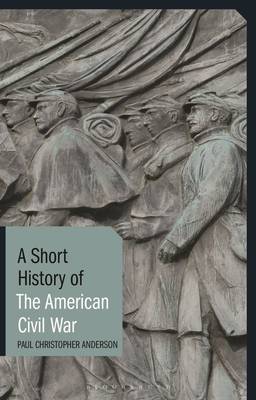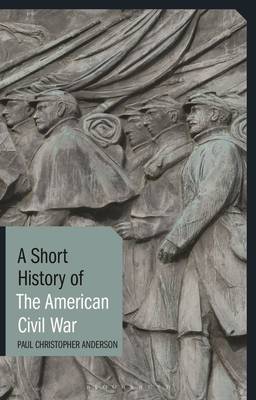
- Afhalen na 1 uur in een winkel met voorraad
- Gratis thuislevering in België vanaf € 30
- Ruim aanbod met 7 miljoen producten
- Afhalen na 1 uur in een winkel met voorraad
- Gratis thuislevering in België vanaf € 30
- Ruim aanbod met 7 miljoen producten
Zoeken
A Short History of the American Civil War
Paul Christopher Anderson
€ 127,45
+ 254 punten
Uitvoering
Omschrijving
The American Civil War (1861-65) remains a searing event in the collective consciousness of the United States. It was one of the bloodiest conflicts in modern history, claiming the lives of at least 600,000 soldiers and an unknown number of civilians. The Civil War was also one of the world's first truly industrial conflicts, involving railroads, the telegraph, steamships and mass-manufactured weaponry. The eventual victory of the Union over the Confederacy rang the death-knell for American slavery, and set the USA on the path to becoming a truly world power. Paul Christopher Anderson shows how and why the conflict remains the nation's defining moment, arguing that it was above all a struggle for power and political supremacy. Melding social, cultural and military history, the author explores iconic battles like Shiloh, Chickamauga, Antietam and Gettysburg, as well as the bitterly contesting forces underlying them. He shows that while both sides began the war in order to preserve - the integrity of the American state in the case of the Union, the integrity of a culture and value system in the case of the Confederacy - it allowed the South to define a regional identity that has survived into modern times.
Specificaties
Betrokkenen
- Auteur(s):
- Uitgeverij:
Inhoud
- Aantal bladzijden:
- 304
- Taal:
- Engels
- Reeks:
Eigenschappen
- Productcode (EAN):
- 9781780765976
- Verschijningsdatum:
- 26/12/2019
- Uitvoering:
- Hardcover
- Formaat:
- Genaaid
- Afmetingen:
- 140 mm x 216 mm
- Gewicht:
- 498 g

Alleen bij Standaard Boekhandel
+ 254 punten op je klantenkaart van Standaard Boekhandel
Beoordelingen
We publiceren alleen reviews die voldoen aan de voorwaarden voor reviews. Bekijk onze voorwaarden voor reviews.












